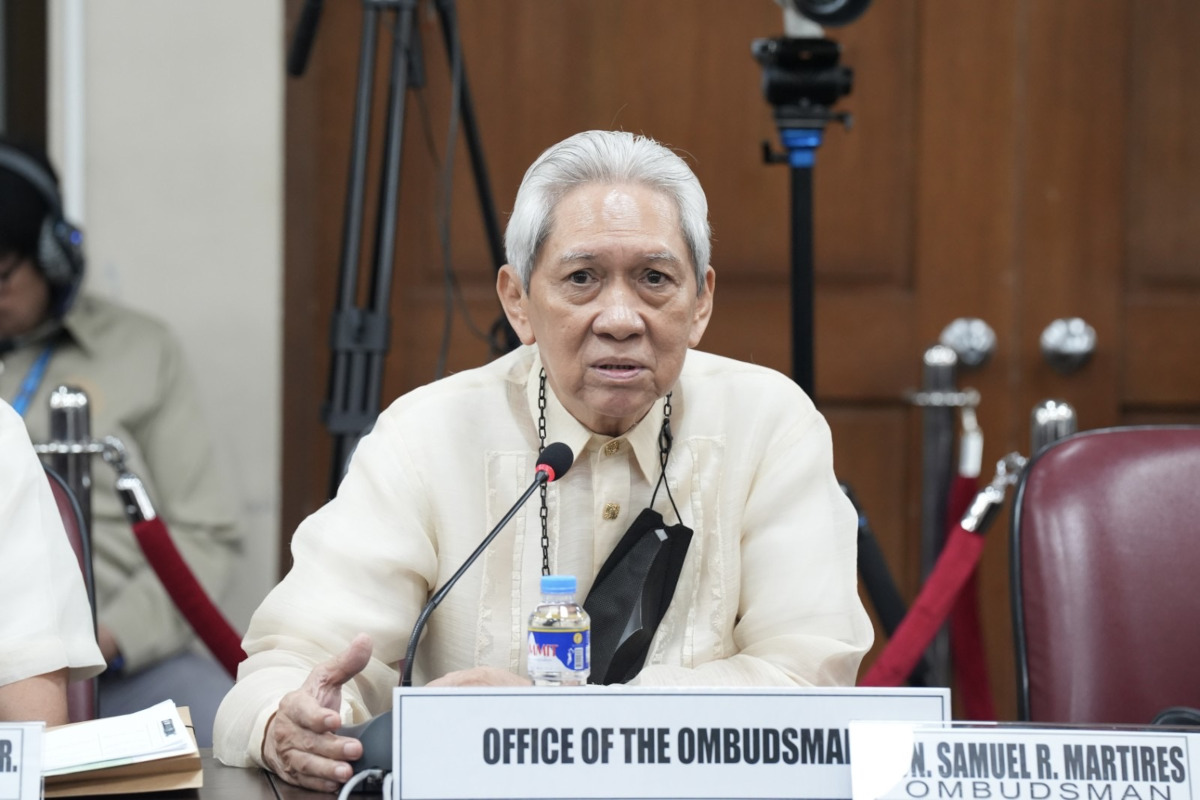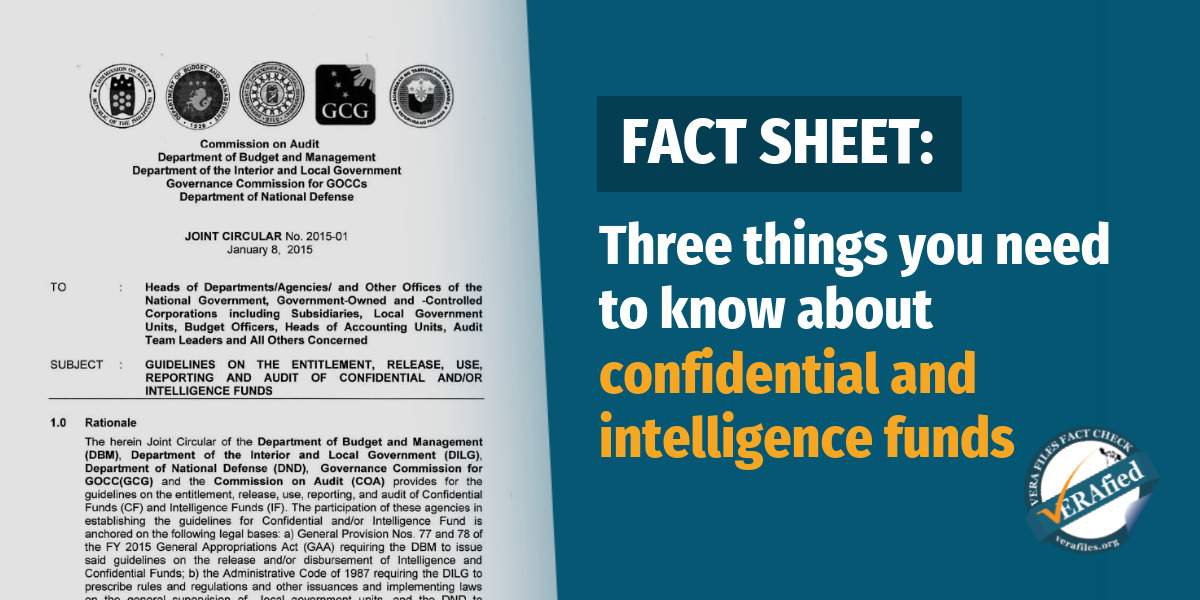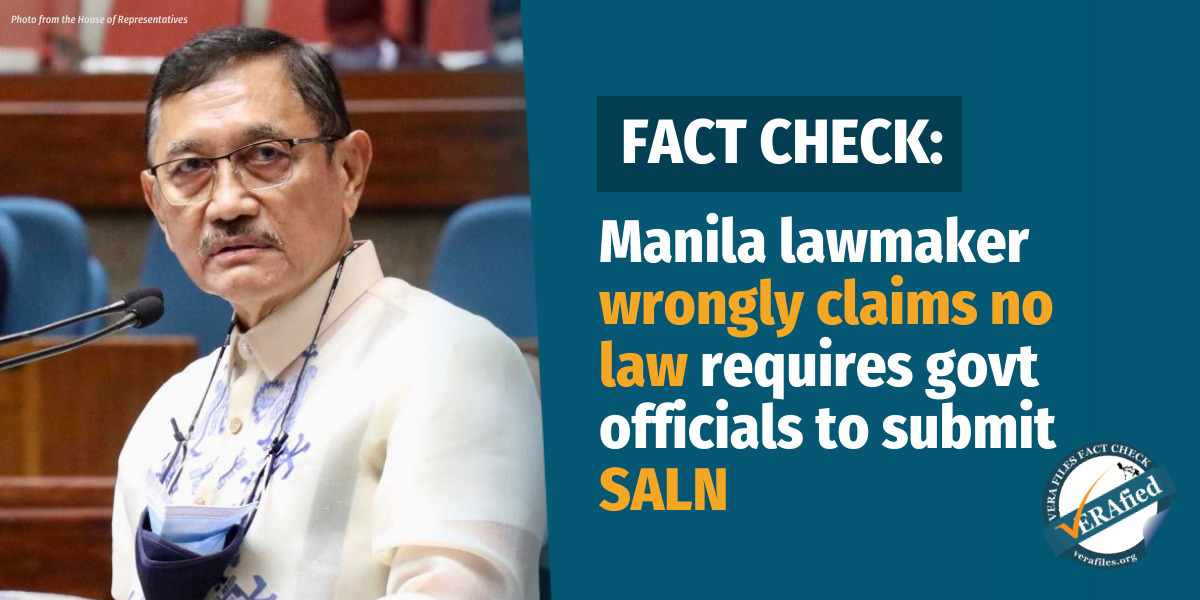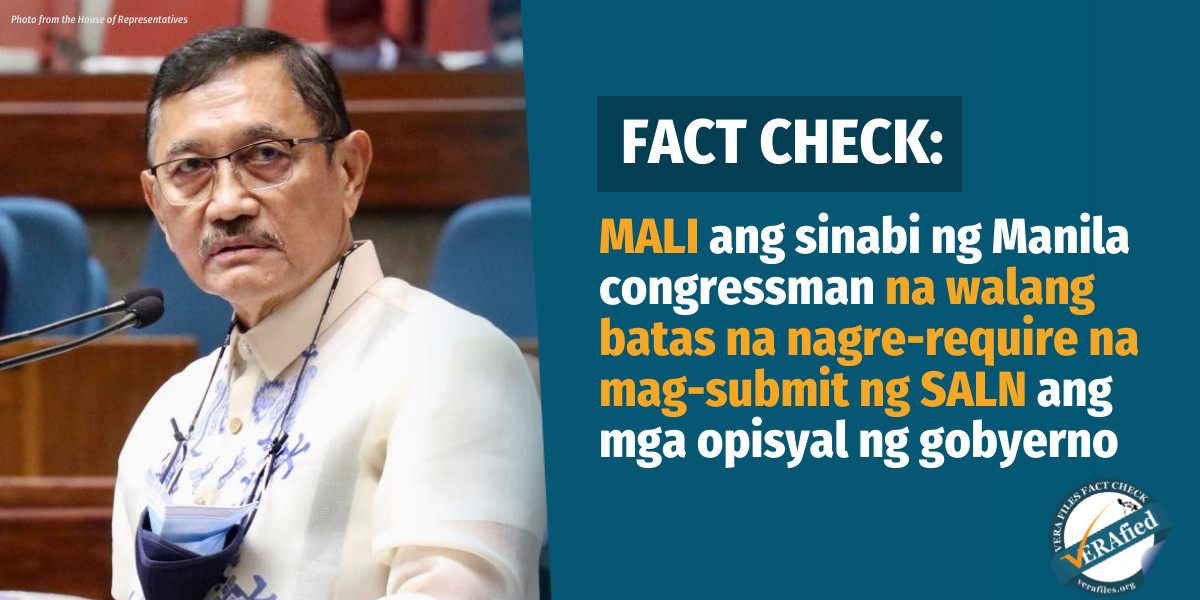After calling on Congress to remove from the General Appropriations Act a provision requiring the Commission on Audit (COA) to publish Audit Observation Memorandum (AOM), Ombudsman Samuel Martires changed his tune two days later, saying that what he actually meant was the removal of the requirement to publish COA’s Annual Audit Reports (AAR).
This was in reaction to insinuations that the Office of the Ombudsman “receives money” when it dismisses a graft and corruption case it had investigated, Martires said during a committee hearing at the House of Representatives on the agency’s P5.05-billion proposed budget for 2024.
STATEMENT
Two days after his suggested revision in the GAA during the Sept. 11 House appropriations committee hearing, the Office of the Ombudsman issued a clarification on Martires’ statement. It said:
“In the recent budget hearing of the Office of the Ombudsman before the Committee on Appropriations of the House of Representatives, the Ombudsman mentioned that the Audit Observation Memorandum (AOM) ought not to be published when what he meant was the Annual Audit Report (AAR).”
Source: Office of the Ombudsman, CLARIFICATORY STATEMENT OF OMBUDSMAN SAMUEL R. MARTIRES (archive), Sept. 13, 2023
It explained that the Office of the Ombudsman is “not protecting erring and corrupt” public officials and employees. Rather, the agency said the office is firm in its belief that only COA’s Final Audit Report should be published because the AAR “could still be taken up on appeal before the Commission on Audit En Banc and the Court.”
FACT
This runs counter to Martires’ first appeal to Congress when he mentioned the AOM as part of his explanation of the Office of the Ombudsman’s functions in providing public assistance and in the prevention, enforcement and investigation of complaints.
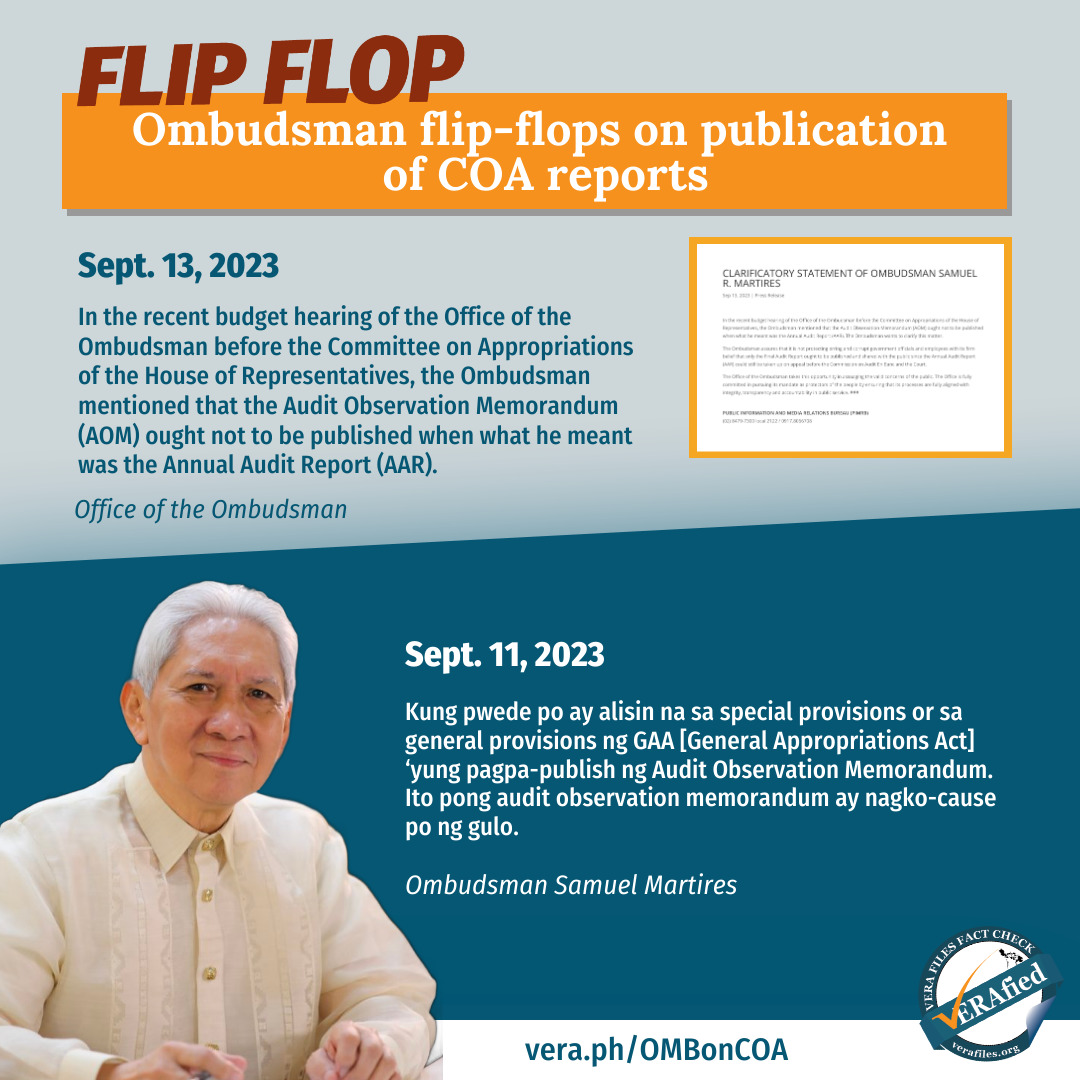 Martires said:
Martires said:
“Kung pwede po ay alisin na sa special provisions or sa general provisions ng GAA [General Appropriations Act] ‘yung pagpa-publish ng Audit Observation Memorandum. Ito pong audit observation memorandum ay nagko-cause po ng gulo.”
(Is it possible to remove the special provisions or general provisions in the GAA that requires COA to publish Audit Observation Memorandum? This audit observation memorandum is causing chaos.)
Source: House of Representatives, FY 2024 Budget Briefings (Committee) Office of the Ombudsman (OMB), Sept. 11, 2023, watch from 1:13:28 to 1:13:54
Martires said news reports which are based on AOMs create “innuendos” from the public that his office had been bribed to dismiss a complaint about irregularities on a project when the only reason COA flagged that project is the non-submission of receipts.
He added:
“I leave this to Congress na alisin natin ito kasi pag nag-file po ng kaso sa Ombudsman [at] dinismiss namin ang kaso kasi wala naman [graft and corruption act], anong sasabihin? ‘Nalagyan na naman ang Ombudsman.’ Eh, ‘pag ganyan ho sana, sana totoo po na may naglalagay sa Ombudsman.”
(I leave this to Congress to remove this because if someone files a case at the Ombudsman, and we dismiss the case because we didn’t see graft and corruption acts, what will they say? ‘The Ombudsman received money again.’ I wish what they say were true. I wish the Ombudsman would really receive money.)
Source: watch from 1:14:21 to 1:14:44
An AOM is a notice to a government agency’s accountable officer, informing him of deficiencies noted in the audit of the confidential and/or intelligence funds. AOMs require the agency’s comments to the deficiencies and submission of other necessary documents “within a reasonable period.”
An AAR, on the other hand, is “the final output” of the regular yearly audit of a government agency’s accounts and operations. An AAR includes an auditor’s certificate, the agency’s financial statements and the audit’s observations and recommendations.
BACKSTORY
Indeed, COA is mandated under the Constitution to submit to Congress and the president an annual audit report of every national government agency, local government unit, government-owned and controlled corporation, and non-government entities subject to its audit.
Such is also outlined in the special provisions of the GAA – the annual expenditure program of the government – specifically in 2022 and 2023.
